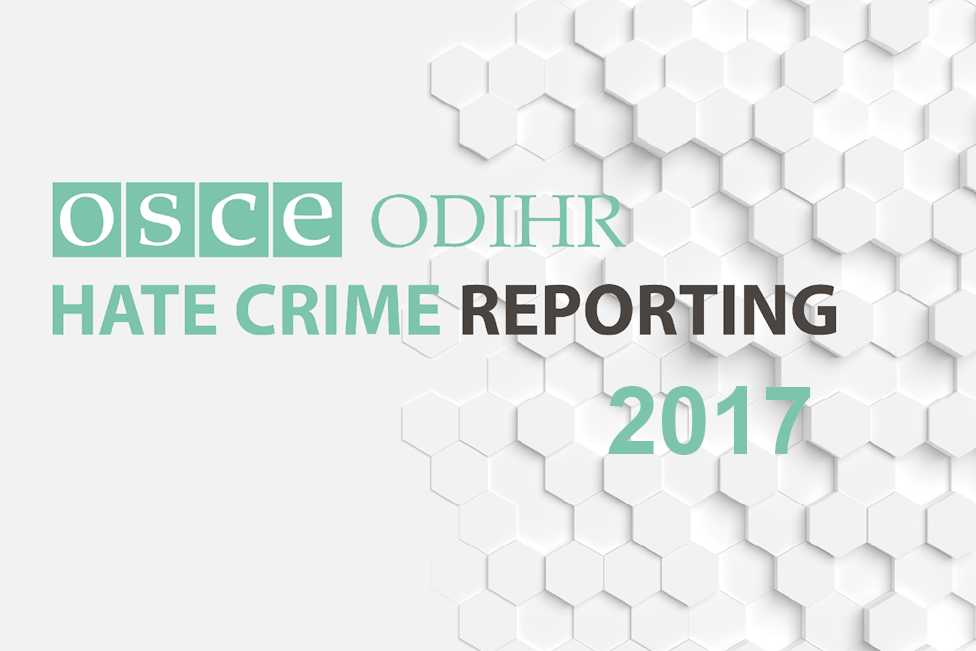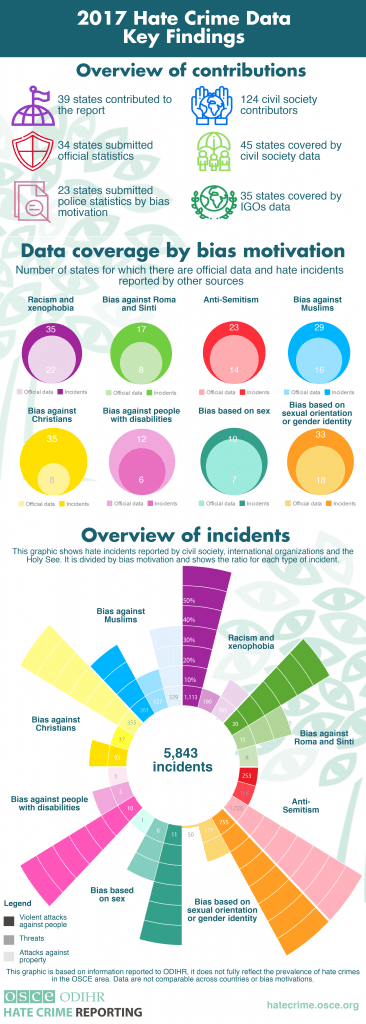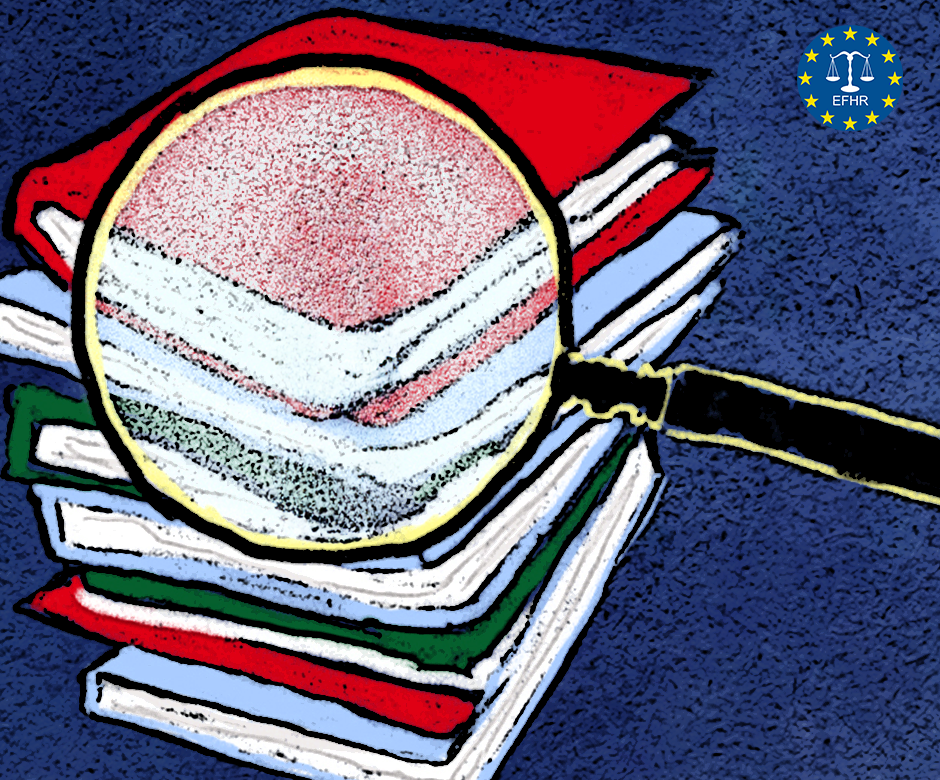- 2018/11/19
New ODIHR data on hate crimes for 2017

To mark the International Day for Tolerance, the OSCE Office for Democratic Institutions and Human Rights (ODIHR) released new hate crime data for 2017 on November 16th.
The published report contains data provided by 39 participating States, including official statistics from 34 of them and police statistics from 23 of them. Additionally, the information was submitted by civil society groups, and IGOs, such as the International Organization for Migration, the Office of the UN High Commissioner for Refugees, and OSCE field operations.
The participating parties, including states, civil society groups and IGOs covered the data by bias motivation, such as racism and xenophobia, bias against Roma and Sinti, anti-Semitism, biases against Muslims and Christians, bias against people with disabilities, as well as biases based on sex and on sexual orientation or gender identity. The overview of the collected data is available in the form of a graphic showing hate incidents divided by the bias motivation and the type of incident. The total number of incidents under analysis is 5 843. They include violent attacks against people, threats, and attacks against property.
According to the graphic, the greatest number of incidents was registered out of anti-Semitism (253 violent attacks against people, 168 threats and 1720 attacks against property), as well as on the grounds of racism and xenophobia (1 113, 190 and 305 respectively). It must be noted that incidents resulting from bias based on sexual orientation or gender identity still remain a challenge and comprise 755 violent attacks against people. The fewest number of incidents was registered in terms of biases based on sex, against people with disabilities and against Roma and Sinti, while hate crime incidents against Muslims and Christians take an in-between position and still require more efforts to prevent them.
Lithuania also reports hate crime data to the ODIHR. Official information about the incidents is collected by the Police Department and the Office of Prosecutor General. Hate crimes recorded by the official authorities in 2017 include 6 incidents on the grounds of racism and xenophobia and 3 incidents resulting from bias against sexual orientation or gender identity – 9 incidents in total.
Moreover, the European Foundation of Human Rights could not remain uninvolved and provided its own information on 5 incidents out of racism and xenophobia, including:
- 1 violent attack against people (a group was subjected to xenophobic slurs and physically assaulted, one victim from Ecuador was injured);
- 1 threat (an Indian couple, including a pregnant woman, were subjected to racist slurs and threatened by a group); and
- 3 attacks against property (the grave of an important Polish politician was vandalized with graffiti, a monument at a Polish grave was destroyed, a city sign written in Polish was damaged).
As for Lithuania, data on 1 violent attack on the ground of sexual orientation or gender identity was additionally provided by the Lithuanian Gay League (LGL).
ODIHR Director, Ingibjörg Sólrún Gísladóttir, encouraged participating States to maximize their efforts and stand against hate crime. She believes that the quality of the provided data is getting better, however, there is still a lot to be achieved to make a real difference for the victims.




